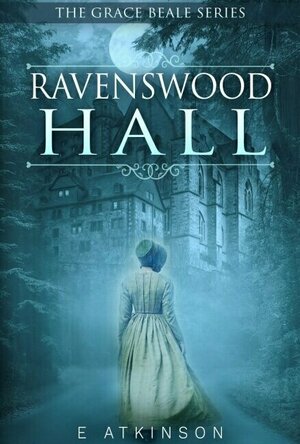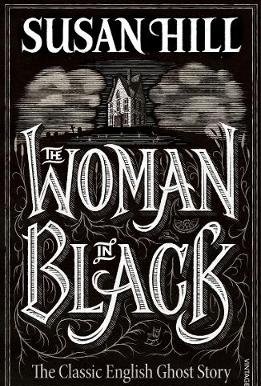Lyndsey Gollogly (2893 KP) rated The Woman in Black in Books
Nov 6, 2022
Book
The Woman in Black
By Susan Hill
⭐️⭐️
"The Woman in Black" tells haunting testimony of a young solicitor, Arther Kipps, who records in detail the nightmarish events of his stay in a house on a marsh in northern England, and the terrible events that were to alter his life forever.
I have never taken so long to read such a short book! I was so bored and disappointed in it. I think it’s one of those books you hear so much about that you go in with high expectations and unfortunately I found it lacking. At least it’s one of those must reads ticked off!

Drumbeats (The Drumbeats Trilogy #1)
Book
It's 1965 and 18 year old Jess escapes her stifling English home for a gap year in Ghana, West...
Historical Mystery Romance

Ravenswood Hall
Book
"Ravenswood Hall' is a historical novel set in the 19th century. We follow Edgar Tirips, whose...
historical

Freemasonry Complete Guide for iPhone
Education and Reference
App
Explore the most complete iPhone application about Freemasonry Freemasonry is the world’s oldest...

Thomas Becket: Warrior, Priest, Rebel, Victim: A 900-year-old Story Retold
Book
From the winner of the 2004 Whitbread Biography Award and the Marsh Biography Award John Guy, comes...

Lawrie McMenemy: A Lifetime's Obsession - My Autobiography
Book
Lawrie McMenemy is one of English football's giants: a legendary figure who came from nowhere to...
ClareR (6054 KP) rated Jane Seymour: The Haunted Queen in Books
May 3, 2018
This novel looks at how she probably wasn't as innocent as we have always been led to believe. In all honesty, she lived at court - a place where family loyalties and wealth were above all else in importance: she couldn't afford to be an innocent.
I like the Jane that Weir portrays. She's resilient and cares deeply about her family and HER Queen (Katherine of Aragon). I really liked this book and all of the courtly intrigues: Tudor England has always fascinated me. It was such a sad end for Jane, and the authors extended notes at the end really explained well what she and some experts thought had really happened to her and why she died (heres a clue: it wasn't childbirth). I will be going back to the first two books in this series to read about Katherine of Aragon and Anne Boleyn in preparation for Katherine Howard (wife #4 - and that should be a good one!!).
ClareR (6054 KP) rated The Confessions of Frannie Langton in Books
May 3, 2019 (Updated May 3, 2019)
This was a captivating story. I learnt a lot about how black Jamaicans were regarded by Londoners (it’s not good), how laudanum was the ‘mother’s little helper’ of its time (although I think it was pretty much taken by anyone, male or female, who could afford it), and how black people were regarded as little more than animals.
The whodunnit element was really puzzling for me, I honestly couldn’t figure it out. I couldn’t think of Frannie as being a murderer and killing the woman she loved.
This is a really good read, and I would highly recommend it.
Many thanks to NetGalley and the publisher for the opportunity to read this wonderful book.
Deborah (162 KP) rated A Lady Never Tells (Willowmere, #1) in Books
Dec 21, 2018
This is the first book in said series and although I didn't actively dislike it, I did find it a bit mediocre. A lot of plot elements seemed very reused and I always find the 'American girls coming over to England and catching eligible aristocratic batchelor' a bit too Mary-Sue-ish.
I didn't find it easy to like the heroine in this book all that much and it was difficult to see quite why the hero (who was likeable) would fall in love with her. Mary (or Marigold!) brings her sister to England to find their English family after their mother dies and they want to escape a somewhat unpleasant stepfather, but after this they all, but Mary in particular, do some pretty silly things. OK, they may not be up on British aristocratic ettiquette, but they seem to loose all common sense sometimes! Mary deliberately decides to conceal some important information and they go off on a jaunt whenever they feel like it, despite being attacked and suffering attempted abductions, and they seem to think it is unreasonable that the gentlemen taking responsibility for them want to try and stop them exposing themselves to danger!
Hopefully the next two books will be better.

Unguarded: My Autobiography
Book
Jonathan Trott was England's rock during one of the most successful periods in the team's history -...



